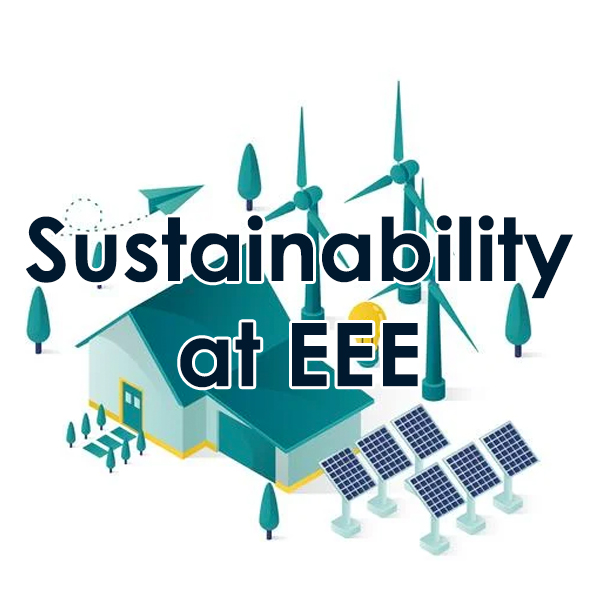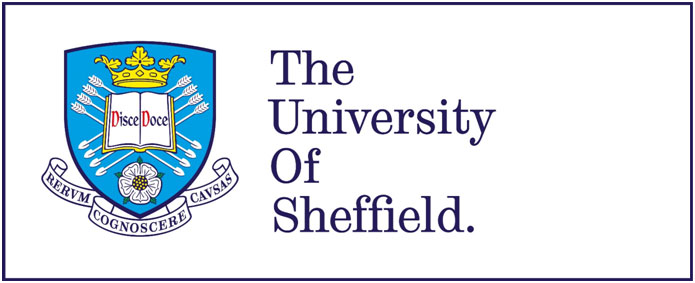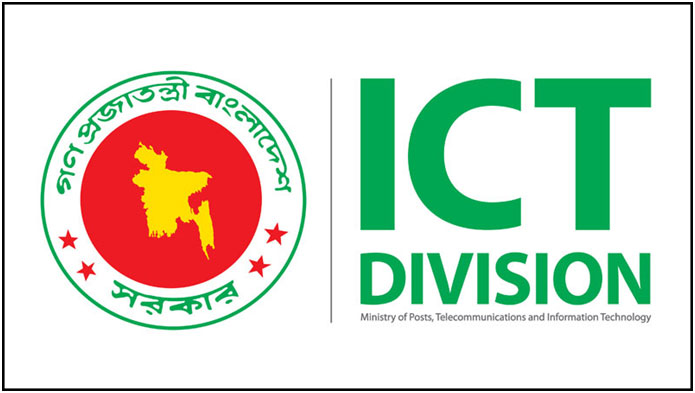Features






Department of Electrical and Electronic Engineering is the youngest department of ULAB. The department started its journey since Fall 2016. The undergraduate EEE program aims to provide the students with the foundation principles of Electrical and Electronic Engineering as well as developing necessary skills on specific topics of interest. The four-year undergraduate program will give the students the background knowledge and skills necessary to access a diverse range of engineering professions both in the local and global arena. The graduates will develop proficiency not only to manage, implement, and deploy engineering technologies, but also to develop and invent new technologies. Besides classroom teaching, students are encouraged to gain hands-on experience by participating in seminars, workshops and industry attachments.
The program is designed to develop well-rounded professionals with excellent engineering skills as well as social and ethical values. The wide range of engineering courses that are built on a solid foundation of mathematics, physics, engineering theories and experimental works are complemented with a number of courses from diverse areas like social sciences, psychology, arts, language, business and sustainable development.
The undergraduate curriculum has four study concentrations in Electrical Power, Electronic, Communication and Signal Processing and Computer. The department has a curriculum committee and Industry Advisory Panel (IAP) where renowned academicians from BUET and industry experts are accommodated. The faculty members of the department are affiliated with IEEE and IEB (Institute of Engineers Bangladesh). Professor M. Mofazzal Hossain has closely been working with BAETE, Bangladesh. More than 60% of faculty members have Ph.D. degrees from abroad.
The faculty members of the department are highly research-oriented and they have a high thrust of cutting-edge research. Faculty members have research collaboration with the USA, UK, Japan and Pakistan. Dr Mirza Rasheduzzaman in collaboration with faculty members of the CSE department of ULAB has received a grant of 12 lacs from ICT ministry. Faculty members are also engaged in different community services like BAETE evaluation team member, international conference organizing committee member, reviewer in different journals and international conferences.
Aside from its research work, the department has very strong extra- and co-curricular activities. The department regularly organizes seminars, works, technical talks, annual picnic, sports week, a project showcasing, EEE fest, etc. To give the students the real-life exposure, the department also organizes frequent industry visit, manages industry attachment (internship) for the final year students.
 The Department of Electrical and Electronic Engineering (EEE) received prestigious accreditation from the Board of Accreditation for Engineering and Technical Education (BAETE) under the Institute of Engineers Bangladesh (IEB) on February 12, 2023. This notable accomplishment validates our unwavering commitment to delivering top-notch education and producing competent, skilled engineers who are equipped to tackle real-world challenges. The accreditation process involved a rigorous evaluation of the department’s curriculum, faculty, facilities, and overall performance, ensuring that we meet the highest standards of engineering education. This accreditation serves as a testament to our dedication to providing quality education and the excellent performance of our faculty, alumni, and staff.
The Department of Electrical and Electronic Engineering (EEE) received prestigious accreditation from the Board of Accreditation for Engineering and Technical Education (BAETE) under the Institute of Engineers Bangladesh (IEB) on February 12, 2023. This notable accomplishment validates our unwavering commitment to delivering top-notch education and producing competent, skilled engineers who are equipped to tackle real-world challenges. The accreditation process involved a rigorous evaluation of the department’s curriculum, faculty, facilities, and overall performance, ensuring that we meet the highest standards of engineering education. This accreditation serves as a testament to our dedication to providing quality education and the excellent performance of our faculty, alumni, and staff.
Vision
The Department of Electrical and Electronic Engineering is focused on producing high-quality graduates and researchers with excellent analytical skills and social values to become globally competitive.
Mission
The Department of Electrical and Electronic Engineering at ULAB will
Goal
The goal of the Department of Electrical and Electronic Engineering is to produce graduates with a broad spectrum of innovative and sustainable technical knowledge motivated by liberal arts aspects such that they become competent both in industry and academia to handle real-life challenges and to become enthusiastic for life-long learning.
The Program Educational Objectives (PEOs) are broad statements to describe the career and professional accomplishments that the B. Sc in EEE program is preparing graduates to achieve. It is expected that the graduates of B.Sc. in EEE program will attain the following PEOs after three to five years of their graduation.
PEO1: Apply Electrical and Electronic Engineering knowledge and up-to-date skills complemented with liberal arts value in the workplace to shoulder the position of technical leadership either individually or interdisciplinary team.
PEO2: Contribute to build a sustainable society as an Electrical and Electronic Engineer in an ethical manner in the globally competitive world.
PEO3: Establish themselves as competent engineers, both in industry and academia, with the evolution of engineering knowledge and become enthusiastic for lifelong learning.
To obtain a B.Sc. degree in EEE, students will have to successfully complete a minimum of 140 credits. The credit and course requirement for the EEE degree program is shown in the table below.
|
Course Category |
Courses | Credit |
| General Education (GED) Courses | 8 (5+3) | 24 |
| Essential Skills (Non-credit) | 4 | 0 |
| Major Core | 17 | 66 |
| Basic Science | 02 | 08 |
| Mathematics and Statistics | 05 | 15 |
| Major Concentration | 04 | 14 |
| Minor / Optional | 03 | 09 |
| Final Year Capstone Project | 01 | 04 |
| Total | 44 | 140 |
During COVID - 19 pandemic, online classes are conducted and certain protocols are maintained and followed by Department of EEE. The rules and regulations are mentioned below:
University of Sheffield

Dr. Mirza Rasheduzzaman, Assistant Professor, Department of EEE, signed a MoU with the University of Sheffield, United Kingdom to collaborate in the project titled "Understanding indigenous and exogenous knowledge interactions within agricultural communities in rural Bangladesh". The project is funded by QR Global Challenges Research Fund (GCRF), University of Sheffield, United Kingdom. Dr. Suvodeep Mazumder from University of Sheffield (UoS), United Kingdom visited Bangladesh as a part of on-going collaboration between UoS, ULAB and NSU from 27 August 2019 to 05 September 2019 and the faculty members of EEE, ULAB engaged in a meeting with him.
ICT Division

Dr. Mirza Rasheduzzaman from the Department of Electrical and Electronic Engineering (EEE) of the University of Liberal Arts Bangladesh (ULAB), in collaboration with Dr. Mohammad Shahriar Rahman and Dr. Nafees Mansoor from the CSE, ULAB and Dr. Nabeel Mohammed from ECE, NSU, has received a research grant of Taka Twelve (12) lac from the Information and Communication Technology (ICT) Division, Ministry of Posts, Telecommunications and Information Technology.
Project Title: Development of An IoT Based Intelligent Vaccine Carrier Monitoring Module for the Unreached
Primary Investigator: Dr. Mirza Rasheduzzaman (EEE, ULAB)
Co-Investigator: Dr. Mohammad Shahriar Rahman (CSE, ULAB) , Dr. Nafees Mansoor (CSE, ULAB) , Dr. Nabeel Mohammed (ECE, NSU)
Summary:
Vaccines are a very effective way of treating preventable diseases in developing countries where it is difficult to supply medical devices and medicines. However, despite the efficiency and benefits of these vaccines, factors such as lack of power supply, geographical ruggedness, and insufficient infrastructure have prevented the spread of vaccine coverage in developing countries. In this project, based on the Internet of Things (IoT) monitoring database constructed with a smartphone and the data obtained from sensors in vaccine carrier, it will be possible to localize and optimize the vaccine carrier to be used in developing countries by using learning algorithms. The goal is to maximize the use time of the vaccine carrier by learning and predicting optimum power usage that maintains the optimal vaccine storage temperature of 2℃to 8℃ in a low power supported environment.
Amount: Taka Twelve (12) Lac Only
Funded by: Information and Communication Technology (ICT) Division, Ministry of Posts, Telecommunications and Information Technology